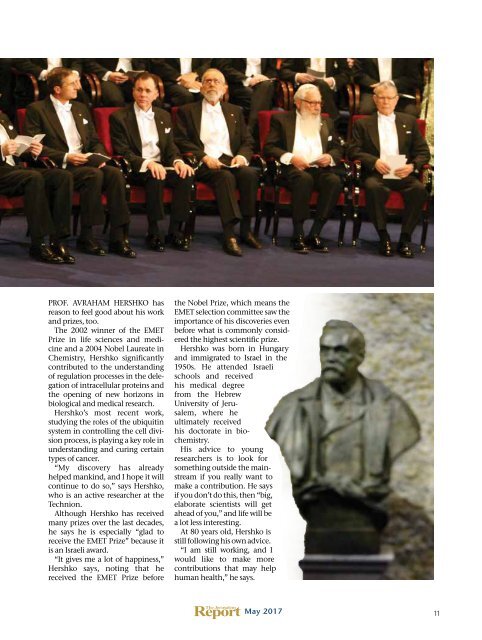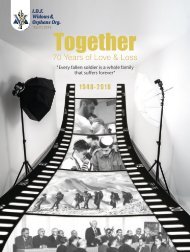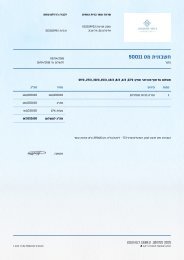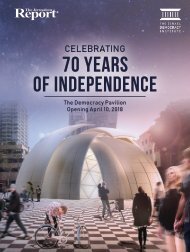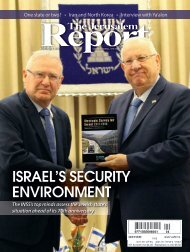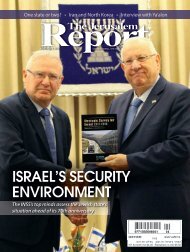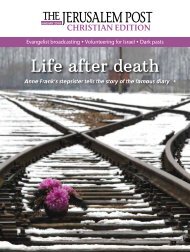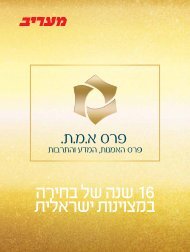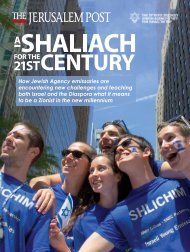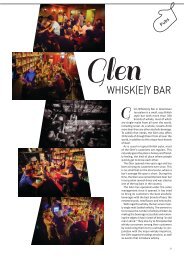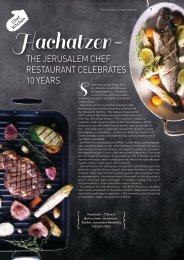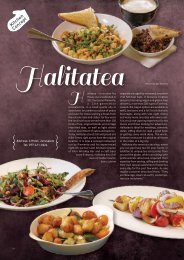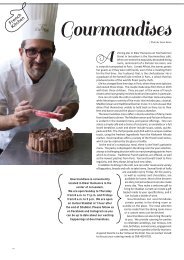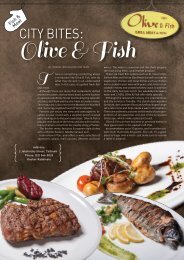Create successful ePaper yourself
Turn your PDF publications into a flip-book with our unique Google optimized e-Paper software.
PROF. AVRAHAM HERSHKO has<br />
reason to feel good about his work<br />
and prizes, too.<br />
The 2002 winner of the <strong>EMET</strong><br />
Prize in life sciences and medicine<br />
and a 2004 Nobel Laureate in<br />
Chemistry, Hershko significantly<br />
contributed to the understanding<br />
of regulation processes in the delegation<br />
of intracellular proteins and<br />
the opening of new horizons in<br />
biological and medical research.<br />
Hershko’s most recent work,<br />
studying the roles of the ubiquitin<br />
system in controlling the cell division<br />
process, is playing a key role in<br />
understanding and curing certain<br />
types of cancer.<br />
“My discovery has already<br />
helped mankind, and I hope it will<br />
continue to do so,” says Hershko,<br />
who is an active researcher at the<br />
Technion.<br />
Although Hershko has received<br />
many prizes over the last decades,<br />
he says he is especially “glad to<br />
receive the <strong>EMET</strong> Prize” because it<br />
is an Israeli award.<br />
“It gives me a lot of happiness,”<br />
Hershko says, noting that he<br />
received the <strong>EMET</strong> Prize before<br />
the Nobel Prize, which means the<br />
<strong>EMET</strong> selection committee saw the<br />
importance of his discoveries even<br />
before what is commonly considered<br />
the highest scientific prize.<br />
Hershko was born in Hungary<br />
and immigrated to Israel in the<br />
1950s. He attended Israeli<br />
schools and received<br />
his medical degree<br />
from the Hebrew<br />
University of Jerusalem,<br />
where he<br />
ultimately received<br />
his doctorate in biochemistry.<br />
His advice to young<br />
researchers is to look for<br />
something outside the mainstream<br />
if you really want to<br />
make a contribution. He says<br />
if you don’t do this, then “big,<br />
elaborate scientists will get<br />
ahead of you,” and life will be<br />
a lot less interesting.<br />
At 80 years old, Hershko is<br />
still following his own advice.<br />
“I am still working, and I<br />
would like to make more<br />
contributions that may help<br />
human health,” he says.<br />
The Jerusalem<br />
Report<br />
May <strong>2017</strong><br />
11


